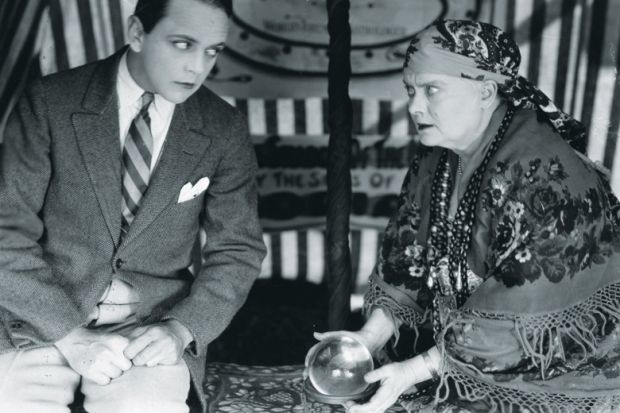Can mediums tell if someone is alive or dead by looking at their photograph?
That question may sound like the premise of a second-rate television detective series or an episode of The X-Files, rather than the topic for a serious scientific study.
However, a French neuroscientist, who set out to discover whether clairvoyants are genuinely psychic, has said that his experiment has shown that the idea of supernatural activity should not be entirely dismissed.
As part of his exploration of parapsychology, Arnaud Delorme, professor of neuroscience at Paul Sabatier University in Toulouse, asked 12 people from San Francisco, who “claimed to be able to experience feelings of vitality from facial photographs alone”, to look at about 400 portraits of different individuals.
The photographs, taken mostly from old US school yearbooks, were turned to black and white images to hide the eras in which they taken (1939 to 1941 and 1962 to 1968), with test subjects asked to press a button to say whether they thought the individual in the picture was still living or not.
According to the results of the study, published in the journal Frontiers in Human Neuroscience in April, many of the participants “‘felt’ a difference between images of deceased and living individuals”, which was “compatible” with their claims of clairvoyant powers.
Professor Delorme, who is also connected to the University of California, San Diego, said that his data should “warrant further investigation of that hypothesis” and also support “claims of individuals who report that some as-yet unknown features of the face predict mortality”.
However, Professor Delorme’s efforts to probe the supernatural may have taken a knock after his paper, titled “Predictions of mortality based on facial characteristics”, was pulled from Frontiers over concerns that the “paper’s findings and assertions were not sufficiently matched by the level of verifiable evidence presented”.
It follows post-publication concerns about the paper, with critics pointing out that there was no control group involving people who did not claim to be a medium, reported the Retraction Watch website.
Indeed, the Californian mediums were able to guess correctly only in 53.8 per cent of cases – slightly better than chance, critics pointed out.
The inclusion of several photographs of US politicians within the photo set may also have skewed the results as participants may have unknowingly recognised them and whether they were still alive, according to the Neurocritic blog.
Those criticisms have led the Swiss-based journal to conclude that there were “serious issues concerning the scientific soundness and methodology” of the paper, Retraction Watch reported.
The site also pointed out that Professor Delorme, a Zen meditator, gained funding for the project from the Bial Foundation, which aims to “foster the scientific study of the human being from both the physical and spiritual perspectives”. He is also affiliated with the Institute of Noetic Sciences, which focuses on topics including “intuition, distant and ‘energy’ healing...mind-matter interaction [and] transformative experiences”, it added.
Professor Delorme told Times Higher Education that he believed the behaviour of Frontiers' editors violated rules regarding publication ethics because “no objective reasons were provided for the retraction” and he was also given no opportunity to appeal the decision.
In a statement published on the Institute for Noetic Sciences website, he called on fellow scientists to email the publisher to protest against the retraction, saying that “science thrives on healthy debate, not on censorship”.
“Whether or not our colleagues in the scientific community are inclined to entertain the subject matter of the article in question, all academic scholars should object to unethical retractions of peer-reviewed published research,” he added.
Register to continue
Why register?
- Registration is free and only takes a moment
- Once registered, you can read 3 articles a month
- Sign up for our newsletter
Subscribe
Or subscribe for unlimited access to:
- Unlimited access to news, views, insights & reviews
- Digital editions
- Digital access to THE’s university and college rankings analysis
Already registered or a current subscriber?






